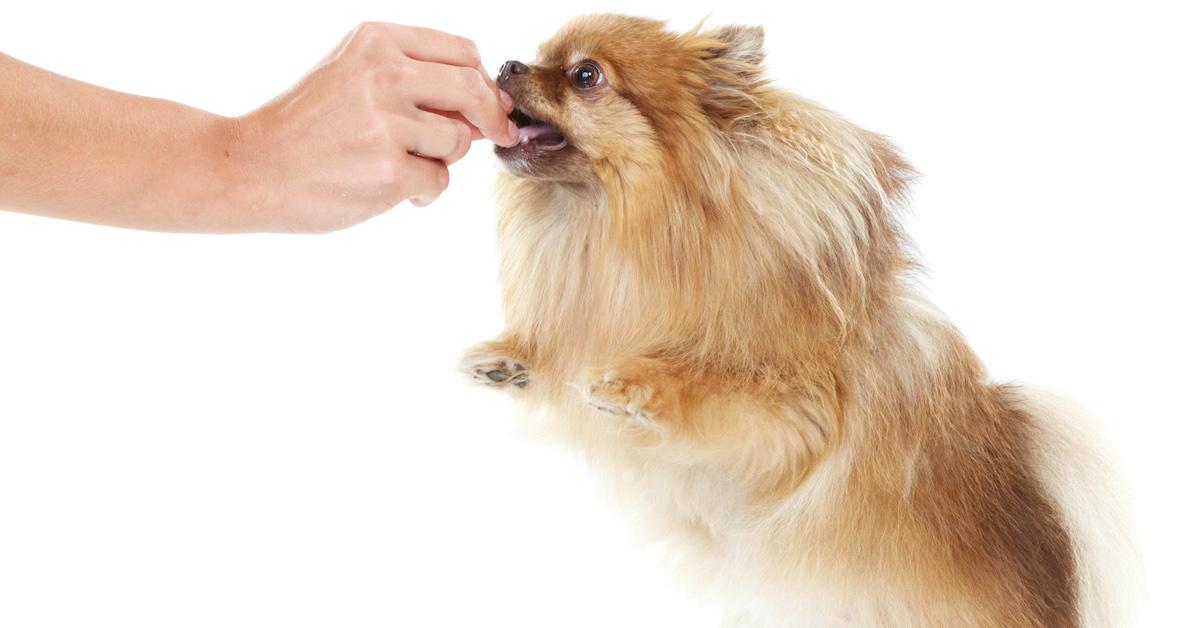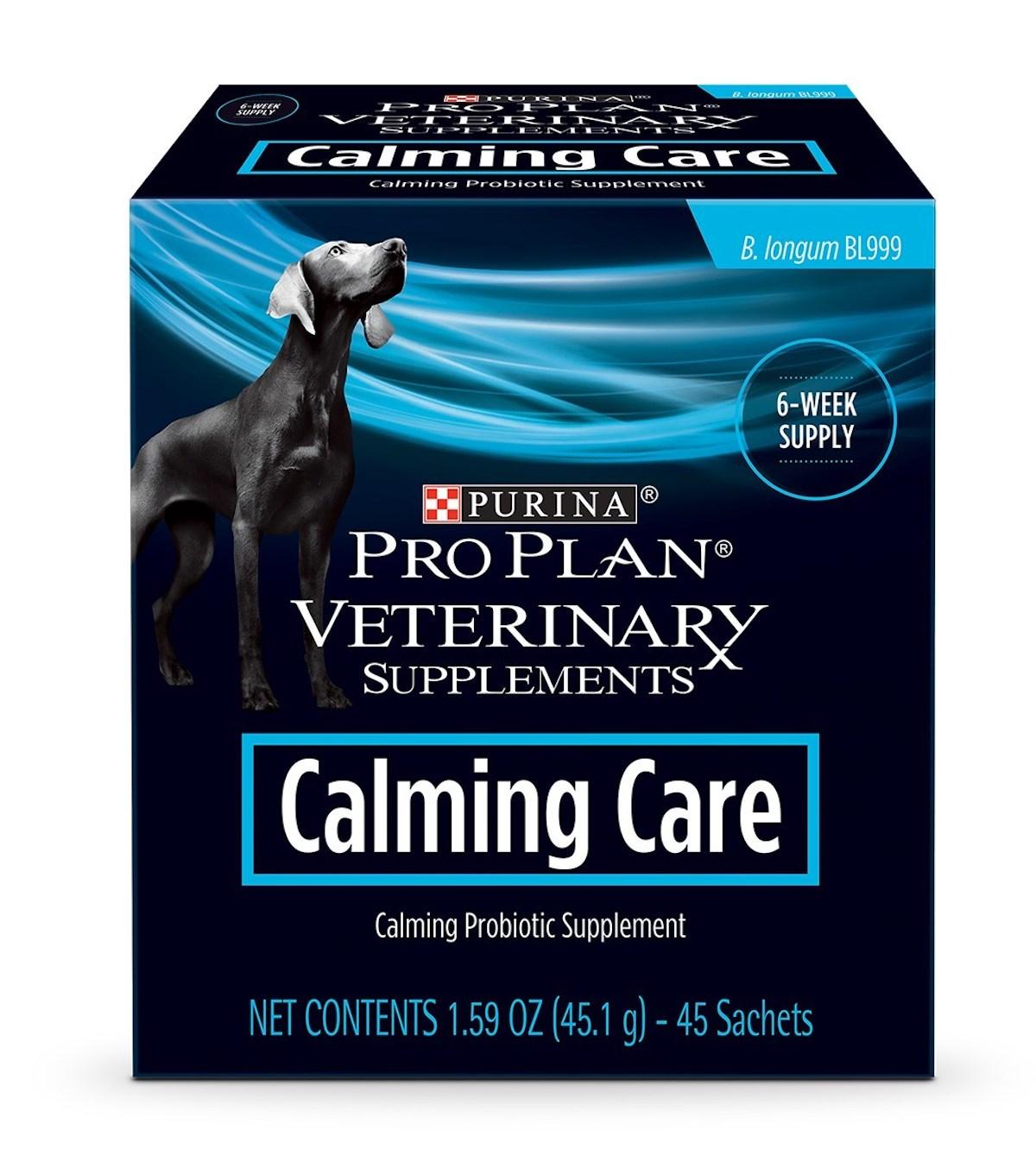Should My Anxious Dog Be Taking Pet Probiotics? Advice From an Expert (Exclusive)
Published May 26 2021, 12:24 p.m. ET

We do absolutely everything we can to make our dogs comfortable — we feed them, play fetch with them, sometimes let them cuddle on the bed, and give them a few too many treats on a regular basis. But sadly, as we resume some regular activities with COVID-19 restrictions lifting, many dogs are experiencing separation anxiety, and some experts claim pet probiotics can help. In addition to improving your dog's gut health, probiotic supplements can supposedly reduce stress, especially in those experiencing separation anxiety.
"Some probiotics can help to maintain a good balance in the gut to promote gut health, while others might be specifically targeted to help with something like anxious behavior or stress responses," Purina Behavior Research Scientist, Dr. Ragen McGowan tells Green Matters via email. "There are a wide range of benefits that probiotics can bring so it is important to talk with your veterinarian about your specific goals or concerns for your pet and find a probiotic with proven benefits to match your pet’s needs."
Pet parents, take notes.
What are the benefits of pet probiotics?
There are a number of reasons you may want to consider giving your lovable doggo probiotics. In addition to potentially helping with indigestion and stomach problems, pet experts tout the mental health benefits that your pups can reap from taking a regular supplement. McGowan tells us about the many benefits of probiotic supplementation, reiterating that it's important for us to first do our research.
"Ahead of actually selecting a probiotic it is important to keep a few things in mind — first off, it is important to note that not all probiotics are the same... for a microbe to be classified as a probiotic it must provide a benefit. So you will want to look for probiotics where there is demonstrated evidence that they are effective for the use that you are targeting," McGowan explains.
Gut health affects the dog brain similar to the human brain.
We've written time and time again about the importance of maintaining gut health — human wellness can be severely thrown out of whack as a result of gut bacteria. A healthy digestive system helps people manage various mood disorders, along with stress, much better, and apparently, this is relatively similar for dogs. But why is that? McGowan connects the dots for us, explaining that all guts are the same.
"The mechanism is the same for all mammals," McGowan tells us. "Just like for humans, there is a direct line of communication between the gut and the brain for our pets. Thus, certain strains of probiotics can have a positive impact on pets’ mental health because of this connection. We are tapping into what is referred to as the gut-brain axis. There really is truth to that old adage about having a 'gut feeling' about something, as often our emotions manifest in visceral reactions in the gut."
And as a result, for both dogs and humans, nutrient intake can directly affect behavior.
"By the same light, what we put into our gut can have a direct impact on our behavior. The same goes for our pets. Through this bi-directional connection, microbes in the gut can directly influence the brain through production of neurotransmitters or hormones that can influence behavior," she says.
Here's what type of probiotics you should look out for, based on your pup:
Interested in giving your pup probiotic supplements? Here's what McGowan has to say:
"If your dog experiences anxious behaviors, I recommend pet parents ask their veterinarians about Calming Care, a probiotic supplement from Purina Pro Plan Veterinary Supplements, which is a management option for owners whose dogs experience anxious behaviors like excessive vocalization, jumping, pacing, and spinning," she says.
"Calming Care contains a strain of beneficial bacteria which is shown to help pets maintain calm behavior, and it helps pets cope with external stressors like separation, unfamiliar visitors, novel sounds, or changes in routine and location. Calming Care may take up to six weeks to see results, so this is a good option for pet parents to start now before fireworks season or before they head back to the office," she continues.
"Currently Calming Care is only available for dogs, but Calming Care for cats will be available in early July. Another option if you are specifically looking for a probiotic to combat digestive upset for your pet is FortiFlora, a probiotic supplement available for both dogs and cats which can help ease digestive upset associated with more acute stressors."

Pet parenting an anxious pup? McGowan has a few additional pieces of advice for you.
With more offices re-opening, there's a chance you won't be around your dog quite as much as you have been over the last year. But if they experience anxiety, McGowan says there are ways — in addition to probiotics — to make your doggo more comfortable in your absence.
"A multi-modal approach is important for addressing anxious behavior in pets, no matter the species," she explains.
"For anxious individuals, they are in a constant state of worry, anticipating something bad to happen even before any sign of an actual threat occurs," she says. "They may always have that underlying anxiety, but we can give them the skills to cope with stressors that come their way. With patience and care, we can help to manage our pet’s anxiety and help them to live happy, healthy lives."

